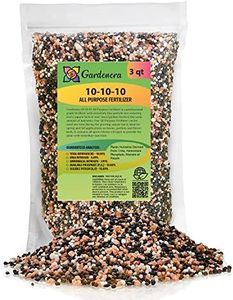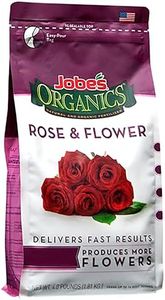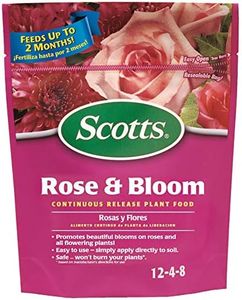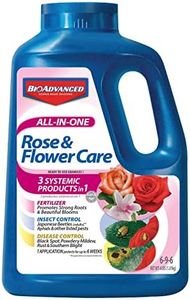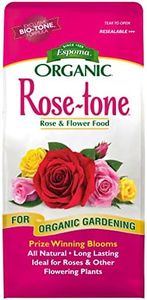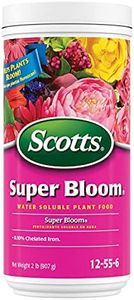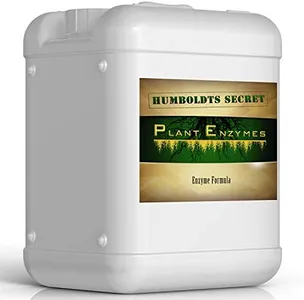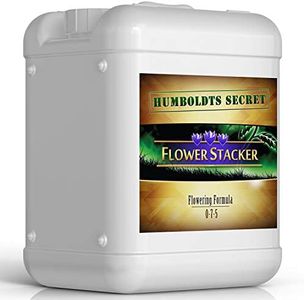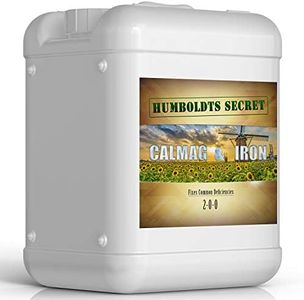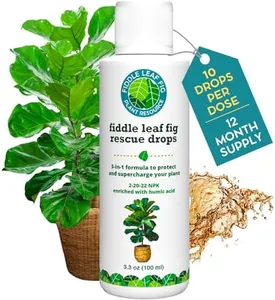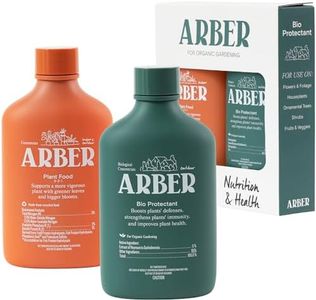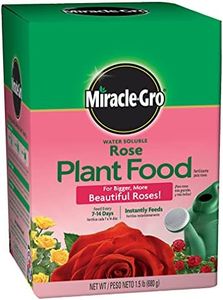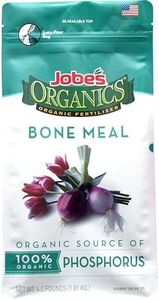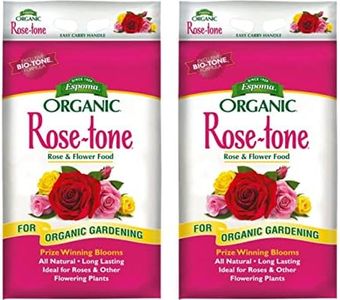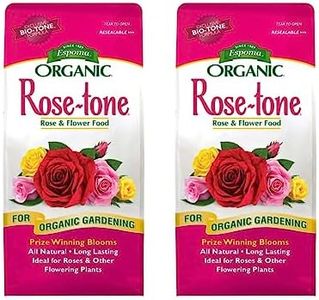10 Best Rose Fertilizers 2025 in the United States
Our technology thoroughly searches through the online shopping world, reviewing hundreds of sites. We then process and analyze this information, updating in real-time to bring you the latest top-rated products. This way, you always get the best and most current options available.

Our Top Picks
Winner
Jobe's Organics Granular Rose Fertilizer, Organic Plant Fertilizer for Rose, Hydrangea, Hibiscus, Azalea, and Other Flowering Shrubs, 4 lbs Bag
Most important from
7324 reviews
Jobe's Organics Granular Rose Fertilizer is a well-regarded option for gardeners looking for an organic solution to nourish their roses and other flowering shrubs. With a 3-4-3 NPK ratio, it provides a balanced supply of nitrogen, phosphorus, and potassium, which are essential for vibrant blooms and healthy foliage. Being an organic fertilizer, it is free from synthetic chemicals, making it a safer choice for the environment and for gardeners who prefer natural products.
The OMRI listing confirms its suitability for organic gardening. One of its standout features is the simplicity of application, recommending use every 6 weeks during the blooming season, which aligns well with the care schedules of most flowering plants. However, the absence of specific mentions of micronutrients such as iron or magnesium might be a drawback for those looking for a more comprehensive nutrient profile.
The granular form helps in easy measurement and reduces the risk of over-fertilizing. While the product is designed to minimize waste and mess, some users might still find granular fertilizers slightly more cumbersome to apply compared to liquid formulations. The 4-pound bag size is practical for most home gardens, but larger gardens may require multiple bags. Jobe's Organics Granular Rose Fertilizer offers a reliable and eco-friendly option for those looking to boost the health and beauty of their flowering shrubs with a straightforward application regimen.
Most important from
7324 reviews
Scotts Rose & Bloom Continuous Release Plant Food, 3 lb
Scotts Rose & Bloom Continuous Release Plant Food is designed to provide steady feeding, promoting beautiful blooms on roses and other flowering plants like annuals and perennials. With an N-P-K ratio of 12-4-8, it supplies a balanced mix of nutrients essential for healthy plant growth.
The fertilizer comes in granule form, making it easy to apply directly to the soil. Users can expect the product to feed their plants for up to two months, which reduces the frequency of applications and is convenient for those with busy schedules. Additionally, the manufacturer claims it is safe and won't burn the plants when used as directed, which is reassuring for novice gardeners worried about over-fertilizing.
It is important to note that the product is synthetic rather than organic, which might be a consideration for those preferring natural options. Furthermore, while it covers a medium area, larger gardens may require multiple packages, potentially increasing cost. This product is best suited for gardeners looking for a reliable, easy-to-use fertilizer that supports vibrant blooms and doesn't require frequent applications.
BioAdvanced All-In-One Rose and Flower Care I, Granules for Insects 4 lb
The BioAdvanced All-In-One Rose and Flower Care is a well-rounded choice for those looking to enhance their rose plants' health with minimal effort. Priced for convenience, this granule-based fertilizing product also serves as an insect killer and fungicide, making it a three-in-one solution. It works by promoting strong roots and vibrant blooms thanks to its effective formulation. The fertilizer is synthetic, which ensures a quick uptake of nutrients by the plants but may not be suitable for those specifically seeking organic alternatives.
The product also controls pests like Japanese Beetles, Aphids, and Leafhoppers, and combats diseases such as Black Spot and Powdery Mildew with its fungicidal properties. One notable advantage is its rainproof protection that lasts up to six weeks, reducing the need for frequent reapplication. However, the restriction in New York might be a limitation for some users.
The granule form makes it easy to apply, and it can be used for both indoor and outdoor plants, adding to its versatility. The product size is manageable (4 pounds) and should cover a reasonable number of plants. It's a strong choice for gardeners looking for an all-in-one rose care solution, especially those dealing with pest and disease issues, though it may not meet the needs of organic gardeners.
